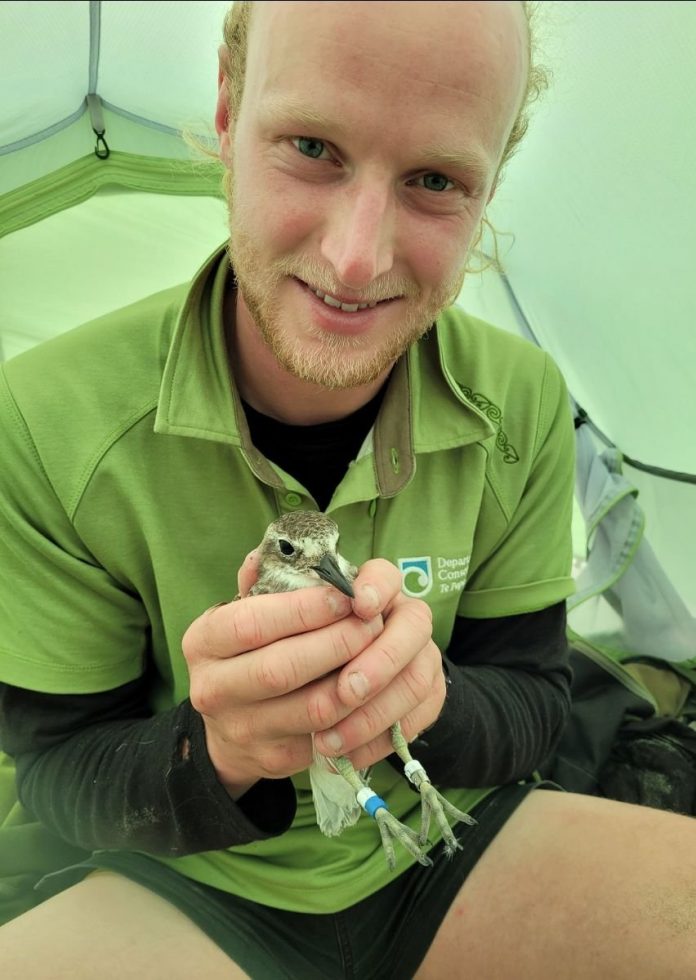
A former Timaru man is at the forefront of efforts to save a critically endangered bird from extinction.
Guy McDonald is project lead of the Southern New Zealand Dotterel (Tūturiwhatu) recovery team based on Stewart Island, and has appeared in the documentary Underbirds — released a fortnight ago — which aims to raise awareness of the species’ predicament.
After finishing his education at Timaru Boys’ High School in 2016, Mr McDonald went on to attend a trainee ranger course in Nelson.
The year-long course included four months of summer placement, which was paid work with the Department of Conservation (Doc).
Mr McDonald chose to do his placement on the Chatham Islands.
He said it had not been a popular choice with others on the course that year — due to its isolation — but for him it had ticked the remote living box.
He believed if you could handle living there you could handle pretty much anything.
While he said it was fun, ‘‘it was pretty rough’’.
Nowadays he is living on Stewart Island, in his role protecting the tūturiwhatu.
In the last flock count in April 2023, there were only 126 birds left.
Another flock count is under way, and he said they are expecting another decline, mostly due to predation from feral cats.
The tūturiwhatu is one of the birds on the planet closest to extinction.
‘‘It has been 40 years since a bird went extinct in New Zealand, so it would be a shame to lose one now.’’
Mr McDonald spoke at the South Canterbury Forest & Bird annual meeting last week, covering the issues, threats and challenges facing the bird.
His presentation included a viewing of the 10-minute documentary.
‘‘It’s just an excuse to catch up with all my Forest and Bird friends, really.’’
Even before beginning high school he had started volunteering at Forest and Bird.
He credited his success to ‘‘getting amongst it, really’’.
‘‘Volunteering is definitely a good foot in the door.’’
Anyone who wanted to help the cause could give to the project through the New Zealand Nature Fund.
The fund has committed to raising $400,000 for more tracks to be cut in and around the birds’ breeding areas, to build bivvies for Doc staff to stay longer and to increase satellite tracking of the birds.




